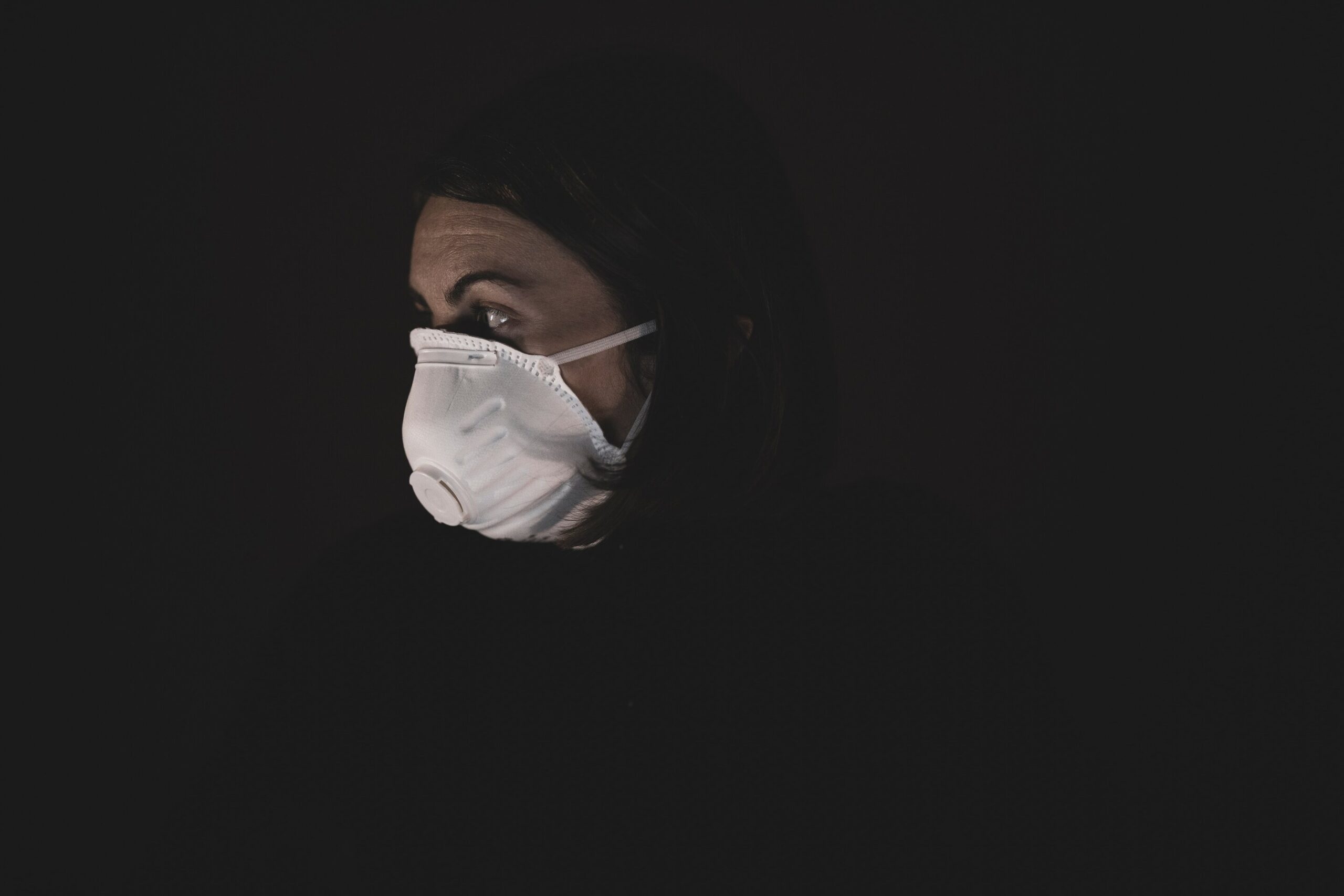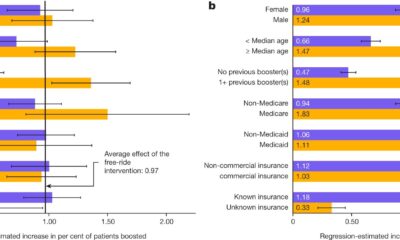Health
Research shows that N95 masks are nearly perfect at blocking the escape of COVID-19 into the air

Credit: Unsplash/CC0 public domain
In a head-to-head comparison of masks worn by people with active COVID-19, the cheap ‘duckbill’ N95 came out on top, blocking 98% of COVID-19 particles in the breath of infected people from escaping into the air. Led by researchers at the University of Maryland School of Public Health (SPH), the results showed that other masks also performed well, blocking at least 70% of virus particles from escaping from their source: the exhaled breath of an infected person.
The study ‘Relative efficacy of masks and respirators as source control for the spread of viral aerosols by people infected with SARS-CoV-2’ was published Arrived May 29 eBioMedicine.
“The research shows that any mask is much better than no mask, and an N95 is significantly better than the other options. That is the most important message,” said the study’s senior author, Dr. Donald Milton. Milton is a UMD SPH professor of environmental health and a global expert on how viruses spread through the air.
The study began in May 2020, shortly after the pandemic began, and compared breath samples from volunteers with active COVID-19, testing the performance of four commonly used masks. Even without giving participants fitness tests or training on how to properly wear masks, all masks significantly reduced the amount of virus escaping into the air.
The study tested masks as a way to control the spread of the virus from the source, that is, the infected person, and did not test masks as protection against COVID-19 in the surrounding air.
“Because COVID-19 spreads in the air, we focused on the extent to which wearing a mask reduces contamination of the air around you,” Milton said. This latest study is a continuation of research by UMD’s Public Health AeroBiology Lab (PHAB Lab) into how contagious respiratory viruses like influenza pollute the air.
Researchers asked volunteers with COVID-19 to breathe into a unique device known as the Gesundheit II Machine, developed by Milton and colleagues to measure viruses in exhaled air. Participants, who breathed into the machine for 30 minutes straight, were asked to perform various vocalizations, such as repeating the alphabet, singing Happy Birthday and even honoring UMD’s mascot by repeatedly saying “Go Terps!”
In each case, researchers measured the amount of virus particles in volunteers’ exhaled breath, combining each 30-minute breathing session with a mask on with another 30-minute session without a mask.
“Data from our study suggests that a mildly symptomatic person with COVID-19 not wearing a mask exhales just over two infectious doses per hour,” said first author Dr. Jianyu Lai, a postdoctoral researcher at the PHAB Lab. “But if you wear an N95 mask, the risk decreases exponentially.”
The duckbill N95 prevented 99% of large particles and 98% of small particles from escaping a person’s mask. Milton says the design’s tight seal, a powerful filter and the large air space in which breath can move all contribute to the duckbill’s success.
Surprisingly, KN95 masks – the disposable masks that are widely used – were no more effective than cloth or surgical masks. The study found that a common brand of KN95 masks leak more air than duckbills or other masks studied because they do not conform well to the face. That downside is compounded by a powerful filter with more flow resistance that pushes air out the sides of the mask instead of through the filter, allowing more virus particles to escape into the surrounding air.
Cloth masks also performed better than both KN95 and surgical masks. Milton theorizes that cloth masks with greater coverage wrap around the face and provide a better seal than KN95 or surgical masks. With cloth mask filters, flow resistance is also lower, allowing breath to pass through the filter and not leak out the sides of the mask.
Limiting the amount of virus particles in the air is an important way to control highly contagious respiratory viruses in general, Milton said. This is even more the case with the COVID-19 virus, as transmissibility has increased over time, with omicron in particular breaking through the immunity people have developed through vaccinations or previous infections.
“Our research definitively shows why it is so important to get non-pharmaceutical responses, like wearing masks, and why we need studies like this to clarify which masks are most effective,” Milton says.
Both Milton and Lai hope their findings will inform health policy in the future, including in combating potential outbreaks such as bird flu or even the common flu.
“Duckbill N95 masks should be the standard of care in high-risk settings such as nursing homes and health care facilities,” Lai said. “Now, when the next outbreak of a serious respiratory virus occurs, we know exactly how to help control the spread, with this simple and low-cost solution.”
In addition to researchers from the UMD School of Public Health, authors from the UMD A. James Clark School of Engineering and the World Health Organization Collaborating Center for Infectious Disease Epidemiology and Control at the University of Hong Kong, China, among others.
More information:
Jianyu Lai et al., Relative efficacy of masks and respirators as source control for the spread of viral aerosols by people infected with SARS-CoV-2: a controlled experimental study on exhaled air aerosols, eBioMedicine (2024). DOI: 10.1016/j.ebiom.2024.105157
Quote: Study Shows N95 Masks Are Nearly Perfect at Blocking Airborne Escape of COVID-19 (2024, May 30) Retrieved June 1, 2024 from https://medicalxpress.com/news/2024-05- n95-masks-blocking-airborne-covid .html
This document is copyrighted. Except for fair dealing purposes for the purpose of private study or research, no part may be reproduced without written permission. The content is provided for informational purposes only.













